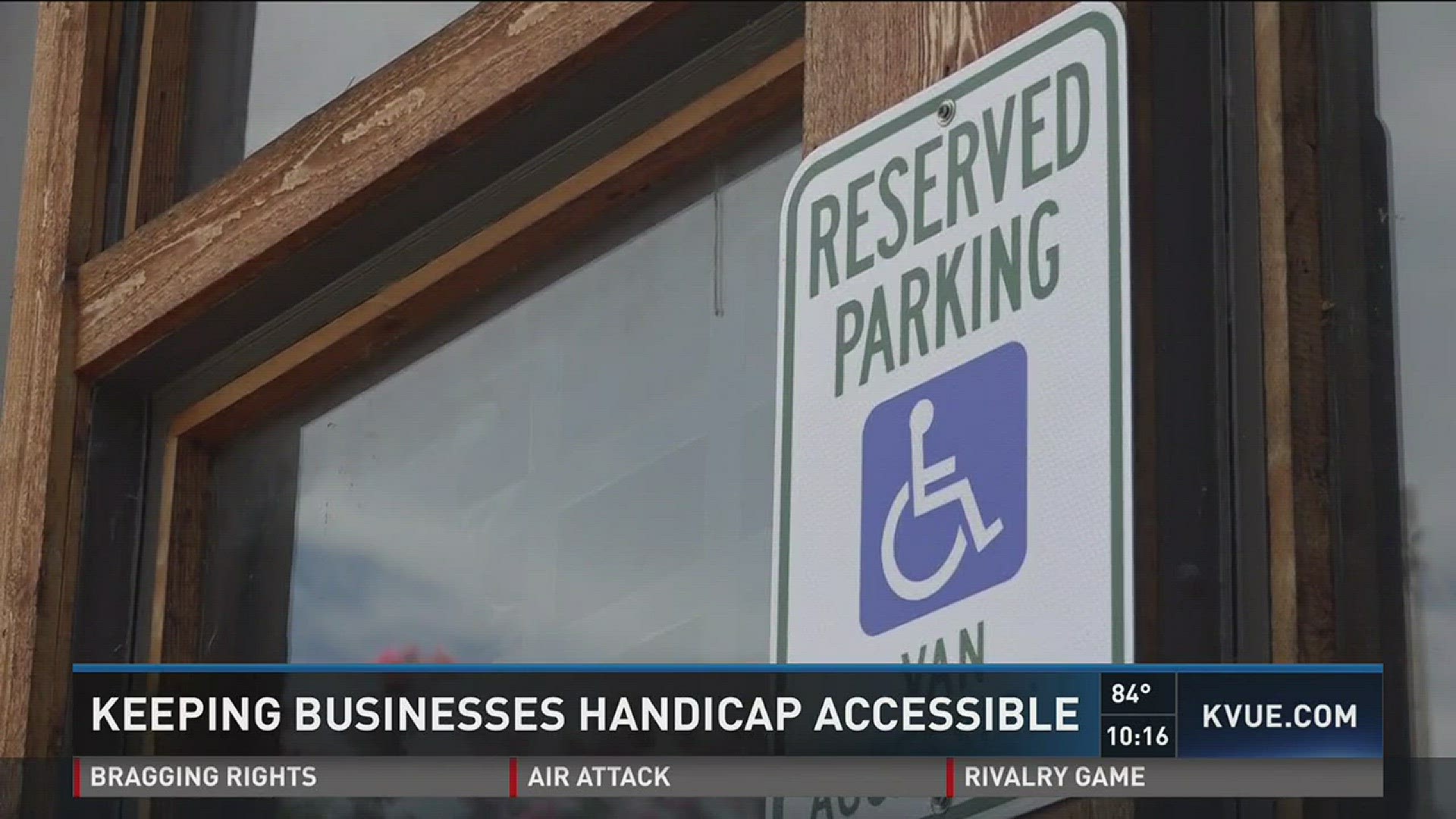Chase Bearden knows firsthand how important handicap accessibility is. He's the Director of Advocacy and Community Organizing at the Coalition of Texans with Disabilities and he works to help others like himself.
"Having [accessibility] there makes all the difference in the world, and I never realized until I needed it," Bearden said.
When he was 17-years-old, Bearden broke his neck in a sports accident and has been in a wheelchair since.
"I went from being able to climb, run, do whatever to being completely paralyzed from the neck down," he said. "I had to figure out how to relive my life."
Bearden with KVUE's Jason Puckett Wednesday about the importance of keeping Austin fully accessible to disabled residents.
"It happens tons of times," he said. "You get somewhere and you can't even find a place to park in the first place. Might be that it's on such an angle or you look at the ramp and you know there's no way I'm getting up that safely. For a lot of people it can be disheartening."
Just across the street from their building downtown was a perfect example. A too steep ramp and a business with only stairs leading to the entrance.
"Most business owners just haven't thought about it," said CTD Executive Director Dennis Borel. "We recognize that a lot of the buildings were built before 1990 and if they haven't had any significant renovations, they're effectively grandfathered in."
Borel said that the Americans with Disabilities Act made accessibility standards legal back in 1990. In his opinion, it was to guarantee civil rights for all people.
"Would we deny access to women because of their gender? Would we deny access to people of color because of their ethnicity? We would never think about it. Yet we continue to see today that access is being denied to our citizens with disabilities,” Borel said.
Both Borel and Bearden said most businesses with issues seem willing to fix issues when they're pointed out, something they're working to raise awareness to in Austin.
"We feel like when the business owner recognizes that there's an issue they'll just go ahead and take care of it many times," Borel said.
"At the end of the day, full access is what removes all the barriers and allows everyone to live their lives," Bearden said. "It's what America is about and I think we should all make sure we do our best to make that happen."
Click here for a full list of ADA requirements and guidelines.

